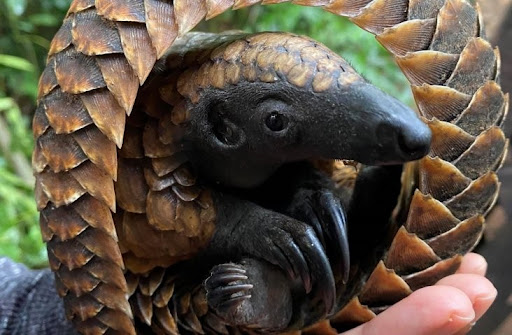
Consumer demand and transnational organized criminal networks are driving the illicit trade of wildlife and wildlife products. The illegal wildlife trade has evolved into one of the world's largest black markets and is valued at tens of billions of dollars. A broad human development issue, wildlife trafficking threatens the existence of entire species, undermines investment in wildlife-friendly livelihoods such as ecotourism, and reduces the safety and security of rural communities. Illegal trade in wildlife and wildlife products, particularly food and pets, lacks controls to reduce disease spillover risks to livestock and humans, with potentially catastrophic impacts on human health, food security, and prosperity. Criminal networks cause harm throughout the wildlife product supply chain by pressuring people with few economic options into poaching, corrupting those that help transport illicit goods, and selling items of questionable social or medicinal value to consumers who often do not understand the true costs of their consumption choices.
Our Work
To address wildlife trafficking, USAID works in priority countries that are sources of wildlife and wildlife products, transit points, and/or destinations for sellers and buyers. Agency partnerships build the capacity of rangers and scouts, forensic scientists, legislators, prosecutors, and judges to detect, arrest, investigate, prosecute, and adjudicate, and sentence criminals along this illegal supply chain. USAID also supports social behavior change campaigns and conservation compatible livelihoods to reduce demand for wildlife products and reduce incentives for people to engage in poaching and illicit trade. Rural communities and members of the transport, financial, and tourism industries are critical partners in preventing, detecting, and disrupting wildlife trafficking. With this support, USAID’s partner countries can better fight the criminal networks that undermine development efforts, and better conserve their wildlife for future generations.
USAID and other U.S. Government agencies—including the Departments of State, Interior, and Justice, among others—coordinate efforts through the U.S. Task Force on Wildlife Trafficking, established in 2013. Task Force members provide financial and technical assistance, including specialized government-to-government mentoring, to reduce opportunities and incentives for wildlife poachers, traffickers, and sellers to engage in wildlife crime. A summary of recent actions and results from Task Force members is in the 2021 END Wildlife Trafficking Strategic Review.
USAID’s long-term investments in conservation and combating wildlife trafficking have helped communities and governments reduce demand for wildlife products, protect wildlife at the source, and strengthen laws and enforcement. The Agency will obligate at least $75 million in fiscal year 2022 funds to tackle wildlife trafficking in more than 35 countries in Africa, Asia, and Latin America and the Caribbean.
Spotlight on Reducing Consumer Demand
Many USAID activities to combat wildlife trafficking aim to reduce demand for wildlife and wildlife products, including those focused on consumers in Southeast Asia.
Because wildlife and wildlife products are sought for a variety of reasons—including food, medicine, art, apparel, and status—understanding consumer motivation is key to developing successful social and behavior change campaigns. USAID supported TRAFFIC, the wildlife trade monitoring network, in developing the "Wildlife Consumer Behavior Change Toolkit” which is helping conservation professionals quickly access and apply information on the most effective practices and monitoring methods.
In 2019, USAID Wildlife Asia leveraged its understanding of ivory demand in Thailand to create the “Beautiful Without Ivory” campaign, featuring five celebrity influencers. Recent survey results show that the campaign decreased the demand and social acceptability of ivory consumption among prospective Thai consumers by half. A new campaign, “Only Elephants Wear Ivory Best,” aims to counter the belief that ivory products bring good luck and happiness. Read more about the background research and outreach plans, and this handbook for designing behavior change campaigns for wildlife conservation.
Spotlight on Justice
A well-functioning criminal justice system is needed to effectively investigate and prosecute wildlife crime when an animal is illegally taken or a suspected criminal is apprehended. USAID supports interagency collaboration, transboundary cooperation, and reforms to policies and practices to ensure wildlife crime is punished appropriately. USAID partners strengthen wildlife law enforcement in partner countries by training hundreds of police, customs officials, prosecutors, and judges each year to bring wildlife criminals to justice.
USAID Mozambique’s comprehensive approach assisted the country’s Attorney General’s Office to improve the prosecution of wildlife crime cases including those perpetrated by transnational organized criminal syndicates. In 2020, a team of legal experts from three Mozambican institutions trained 162 rangers, prosecutors, and judges, and supported a local prosecutor who assisted in the collection and handling of evidence and case-building. These efforts resulted in increased prosecution including wildlife crime cases, resulting in an 85 percent conviction rate for cases heard—up from less than 50 percent just three years ago.
Related Links
- USAID’s efforts to conserve wildlife
- Measuring Efforts to Combat Wildlife Crime: A Toolkit for Action and Accountability
- USAID Wildlife Asia
- Reducing Opportunities for Unlawful Transport of Endangered Species project
- Targeting Natural Resource Corruption project
- Wildlife Trafficking Response Assessment and Priority Setting project
